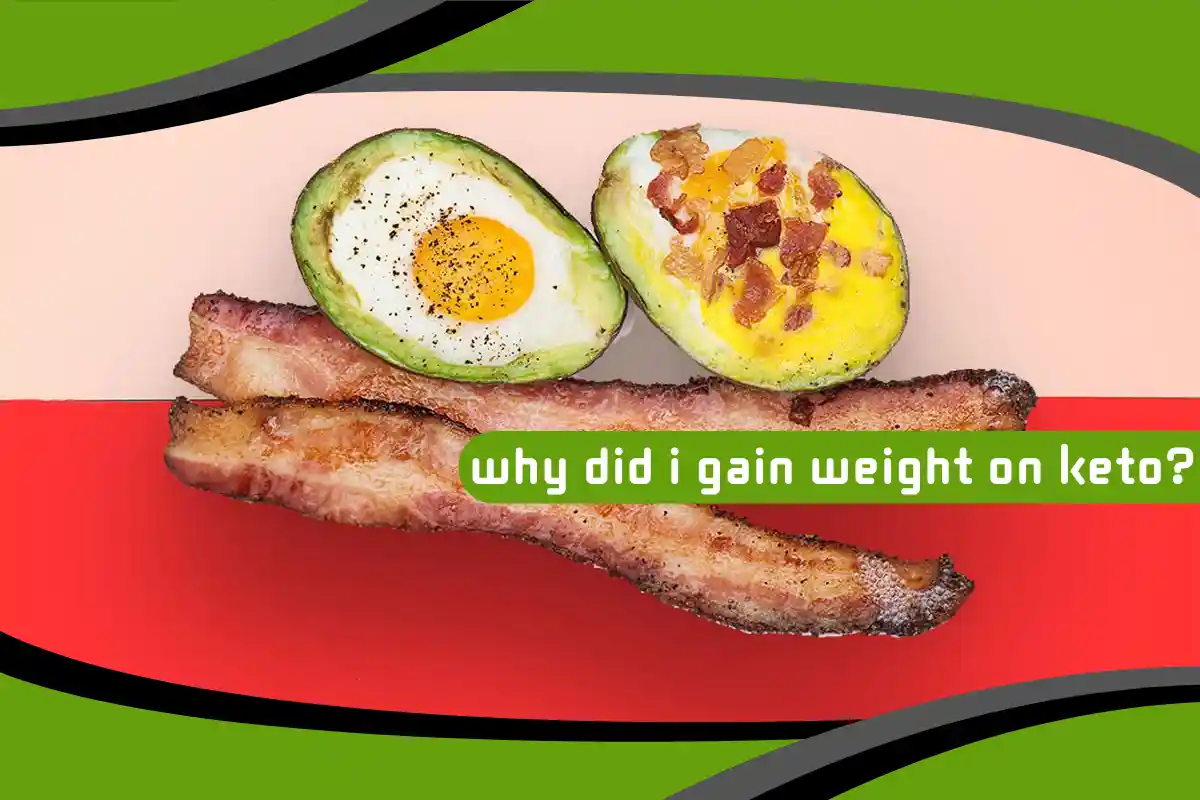The ketogenic diet, often praised for its fat-burning prowess, has become a go-to strategy for many people aiming to lose weight quickly. But not everyone sees the results they expect. If you’ve gained weight on keto, you’re not alone—and you’re not failing. In fact, understanding the possible reasons behind weight gain while on a high-fat, low-carb regimen is key to making the diet work for you. Let’s break down the real reasons weight gain can occur on keto and how to approach them with confidence.

Misconceptions About “Unlimited” Fat Intake
One common misunderstanding is that fat can be eaten freely on keto. While fat is the primary energy source on this diet, calories still matter. Overeating fatty foods like cheese, butter, and oils—often without tracking—can easily lead to a caloric surplus, halting fat loss or even causing weight gain. It’s important to remember that even though carbs are limited, your body can still store excess fat when you consume more calories than you burn.
Consuming Too Many Keto-Friendly Snacks
The market is flooded with “keto-approved” snacks like bars, cookies, and treats. Though low in carbs, many of these products are calorie-dense and highly processed. Frequent snacking, even on keto-friendly items, can push your daily intake over your calorie needs. Moreover, ingredients like sugar alcohols may cause bloating or water retention, which can affect the scale.
Overestimating Daily Activity Levels
Keto enthusiasts sometimes rely on rough estimates or fitness trackers to gauge their activity levels. These tools can overestimate calorie burn, leading to an unjustified increase in food intake. If you believe you’re burning more calories than you actually are, you might unknowingly be creating a calorie surplus, leading to weight gain despite following keto rules.
Hidden Carbohydrates in Foods
Carbs can sneak into your meals through sauces, marinades, and certain vegetables or dairy products. Over time, small amounts of hidden carbs can accumulate and kick you out of ketosis, making your body revert to glucose metabolism. This shift can reduce fat burning and potentially lead to weight gain, especially if combined with a high-fat intake.
Watch also: Why Do I Feel Bloated on Keto? Expert Insights into Causes and Solutions for Keto Bloating
Water Retention and Electrolyte Imbalance
Keto changes how your body processes electrolytes like sodium and potassium. If not managed correctly, these shifts can lead to water retention, which shows up as sudden weight gain on the scale. Additionally, as glycogen stores fluctuate, water weight comes and goes. This doesn’t necessarily reflect fat gain but can be discouraging without context.
Hormonal Changes and Stress
Cortisol, the stress hormone, can impact weight gain by promoting fat storage—especially around the abdomen. Keto can be stressful on the body initially, particularly if the transition is abrupt. Moreover, disrupted sleep or chronic stress can elevate cortisol levels, counteracting the benefits of the diet and leading to weight gain.
Overeating Protein Instead of Fat
A common keto mistake is increasing protein intake at the expense of fat. While protein is essential, excessive consumption can trigger gluconeogenesis, a process that converts protein to glucose. This can reduce ketone production and interfere with fat metabolism, making it harder to burn fat effectively on keto.
Metabolic Adaptation and Previous Dieting
If you’ve dieted extensively in the past, your metabolism might have slowed down. Chronic caloric restriction can cause the body to adapt by burning fewer calories at rest. When switching to keto, even if your food choices are correct, your body might still resist weight loss, and in some cases, even gain weight as it readjusts.
Lack of Portion Control
Just because a food fits the keto macros doesn’t mean it should be consumed in unlimited quantities. Portion control is still necessary to avoid overeating, especially when it comes to calorie-dense foods like nuts, seeds, and avocados. Without mindful eating practices, it’s easy to consume too many calories—even on keto.
Misunderstanding “Net Carbs”
Many keto followers subtract fiber and sugar alcohols to calculate “net carbs.” While this is accepted in the community, it can be misleading. Some sugar alcohols still raise blood sugar and insulin levels, disrupting ketosis. Overreliance on net carb labeling might cause you to consume more effective carbs than intended, leading to weight gain.
Gut Health Disruption
Rapid dietary changes like switching to keto can alter your gut microbiome. Some people experience digestive discomfort, bloating, or constipation, which can result in temporary weight gain. A lack of fiber from whole grains and fruits might negatively impact gut health, which also influences metabolism and fat storage.
Eating Out Too Often
Restaurants and fast-food establishments may offer keto-friendly options, but hidden oils, sugar, and sauces can make meals less keto than they seem. Frequent dining out reduces control over ingredients and portion sizes, which can unintentionally increase carb and calorie intake, contributing to weight gain.
Emotional Eating on Keto
Even on keto, emotional eating is a challenge. People often turn to high-fat “comfort” foods like cheese and nuts when stressed or bored. These foods, while keto-compliant, can easily push your calorie intake over the edge, especially if eaten in large quantities without hunger cues.
Watch also: Keto Guacamole & Cucumber Bites: The Ultimate Low-Carb Party Snack Everyone Will Love
Inadequate Sleep and Recovery
Lack of sleep affects hormones like ghrelin and leptin, which regulate hunger and satiety. Poor sleep increases cravings, decreases insulin sensitivity, and may lead to poor food choices. Even on keto, insufficient sleep can blunt weight loss and lead to fat gain, especially if it’s chronic.
Alcohol Consumption on Keto
Alcohol slows fat metabolism and provides empty calories. Many spirits are low in carbs, but mixers and excessive drinking can interfere with ketosis. Even carb-free alcohol can impair judgment, leading to overeating or choosing off-plan foods, which contributes to weight gain.
Underlying Medical Conditions
Conditions like hypothyroidism, polycystic ovary syndrome (PCOS), and insulin resistance can make weight loss on keto more difficult. In some cases, these conditions may even cause weight gain despite dietary adherence. It’s crucial to consult with a healthcare provider to rule out medical issues that might be influencing your results.
Unrealistic Expectations and Short-Term Tracking
Some people expect dramatic weight loss within days of starting keto. While some experience quick initial results due to water loss, true fat loss takes time. Short-term tracking might capture natural fluctuations rather than long-term trends, giving a false impression of weight gain or plateauing.
Not Truly in Ketosis
Even if you think you’re following keto, you might not be in a state of ketosis. Without monitoring ketone levels, it’s hard to know for sure. Consuming too many carbs or too much protein, or not enough fat, can prevent ketosis altogether, making weight loss less likely and weight gain more possible.
Overconfidence After Initial Success
Some people lose weight initially on keto and then ease up on tracking and portion control. This overconfidence can lead to creeping carb intake and increased snacking, slowly pushing the body out of ketosis and leading to regained weight. Continued vigilance is key to long-term success.
Nutrient Deficiencies and Fatigue
Lack of micronutrients on keto can lead to fatigue and reduced physical activity, which impacts overall energy expenditure. Magnesium, potassium, and sodium are crucial for energy and muscle function. Without them, you might move less throughout the day, decreasing your caloric burn and contributing to weight gain.



No comment